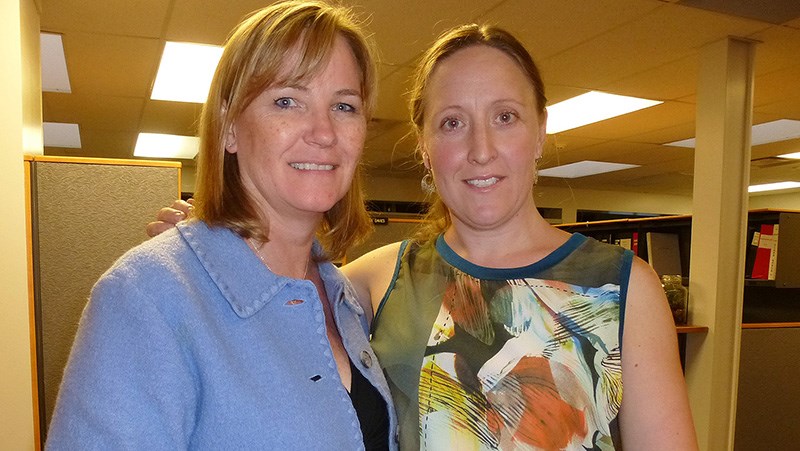Two Tri-City parents say they are frustrated with what they consider to be a lack of attention paid to concerns about dyslexia in School District 43.
At Tuesday's board of education meeting, Cathy McMillan of Decoding Dyslexia BC and Kim Fisher called on the district to fund early intervention programs for young children and professional development for teachers to improve the odds of graduation for learning disabled students.
The parents say a 2012 Supreme Court of Canada case backs their demand for more supports for children who struggle with reading.
"This is a human rights issue," said Fisher, whose son is in Grade 2 in a Coquitlam school and gets extra support for 20 minutes three times a week — when an assessment she paid $2,600 privately for recommended five times that amount.
"When 20% of a school district struggles to learn because of dyslexia, dysgraphia and dyscalculia, and the district refuses to respond with appropriate intervention, they fail not only to provide free and appropriate education on a regular basis, but they violate the basic human right to an appropriate education."
COURT RULING
Fisher is studying the Orton-Gillingham method, one of a few instructional programs recommended by the International Dyslexia Association, to be able to help her son. McMillan pulled her daughter out of school in SD43 and the Grade 9 student is now getting good marks at Collingwood School in Vancouver, where she benefits from a 5-to-1 student/teacher ratio.
Both parents say SD43 needs to do more to help students with dyslexia.
Their plea comes four years after the BC Supreme Court of Canada ruled a North Vancouver school discriminated against a severely dyslexic boy when it closed a diagnostic centre that helps special-needs students.
"These are bright children who are being marginalized," said McMillan, who noted the U.S. is far ahead of Canada in making dyslexia screening and support mandatory. "Education needs to change."
Following the presentation, board chair and Port Coquitlam Trustee Judy Shirra expressed sympathy for the parents and said she hopes new provincial curriculum being introduced for kindergarten to Grade 9 students would target students with learning challenges. The board will respond more fully at a following meeting, Shirra said.
WAIT TOO LONG
Fisher and McMillan say the district waits until Grade 4 before giving students a special assessment test to diagnose their learning challenges and doesn't provide enough early intervention. They also want teachers to be trained in working with students with dyslexia.
But the district's director of instruction, Paul McNaughton, says at-risk students may be diagnosed before Grade 4 while cautioning that early diagnostic assessments for children Grade 2 and younger can create false positives and are often unnecessary.
He also said supports — in the form of help with decoding and sound-to-letter mapping — is given to children who need extra help with reading.
"Currently, this is done on a school-by-school basis but we have been working with Decoding Dyslexia to explore the use of universal early screening strategies and to incorporate professional development supports into our overall district plan," McNaughton said in an email.
Cost and time are always a challenge, he said, as are other professional development demands, but the district is hoping to initiate something next year.
But McMillan disagrees that the district is doing enough. She told The Tri-City News there has been little movement on the district's part to make changes since she presented to the board last year. And some students aren't getting the help they need, she said, citing an instance when she was asked to advocate for a child who didn't get an independent education plan (IEP) reviewed until four months after the school year started.
Dyslexia tends to run in families and McMillan, who struggles with it herself but graduated from university even though she wasn't diagnosed until she was older, said it's heartbreaking to see families trying to navigate the school system, unable to get the help they need for their children.
"I'm hoping to get them to recognize learning disabilities a little bit more readily in the province. Autism certainly has a huge awareness associated with. It's a struggle for our guys just about every term because it's invisible."
• The group has a Facebook page Decoding Dyslexia BC to connect parents whose children struggle with reading and writing.



